Swiss parliament calls for more control over foreign policy
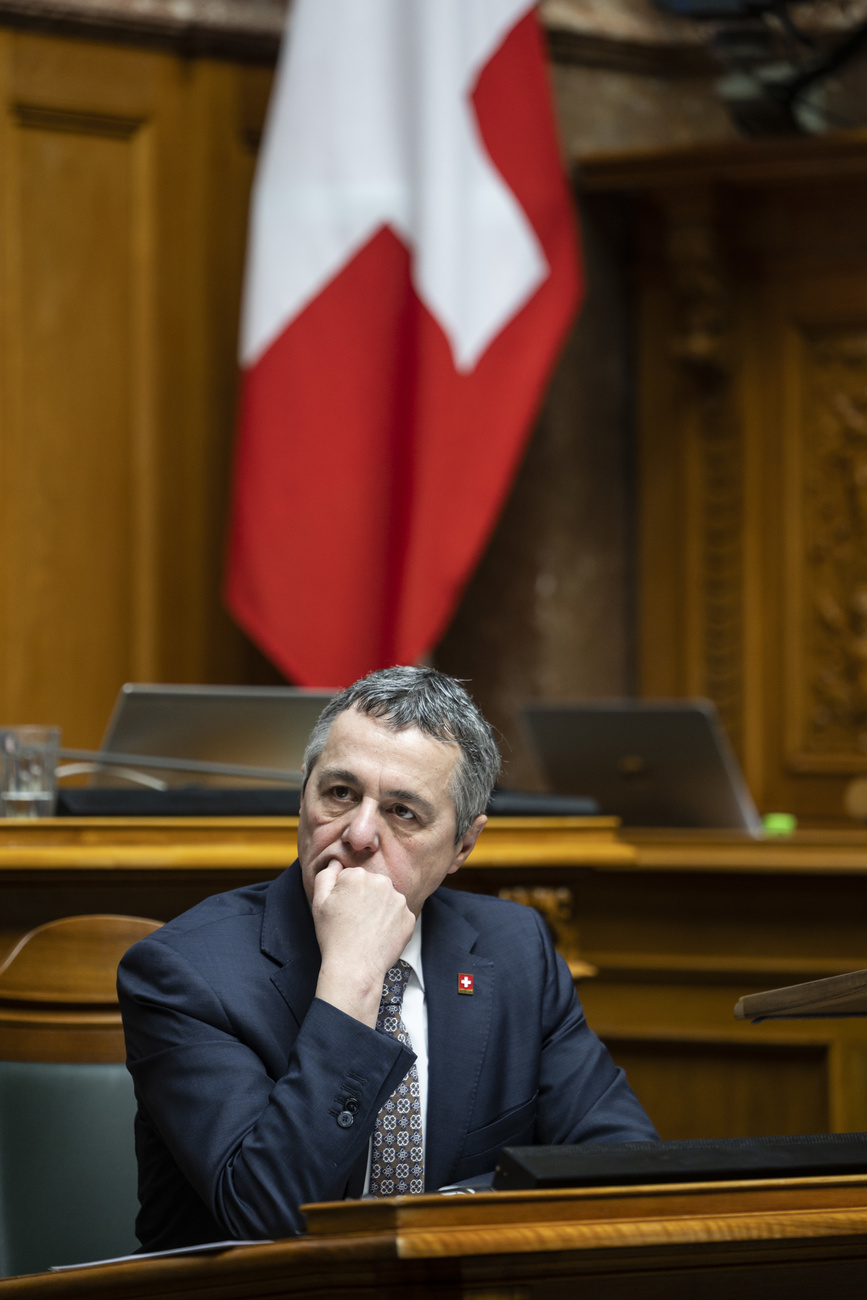
Foreign policy is all about strategic process. It is slow-moving and calculated by nature. This is especially true in neutral Switzerland – when a crisis occurs, the country seems sluggish. The federal parliament is now showing clear ambitions to intervene and bring momentum back to foreign policy.
When Russia invaded Ukraine in February 2022, the Swiss government seemed confounded. For days following the beginning of the conflict, it struggled to find a clear and coherent position. Similarly, Switzerland reacted slowly when riots broke out on the streets of Iran in late 2022. The riots resulted in hundreds of deaths within its first few days.
In the case of Iran, the political situation is delicate for Switzerland. The Alpine nation has the mandate to represent the interests of the United States in talks with Iran. As a diplomatic intermediary, Switzerland is grappling with the dilemma of whether it should publicly condemn the repressive tactics used against protesters in Iran. In the meantime, Switzerland prefers to focus on the possible positive effects of discreet dialogue.
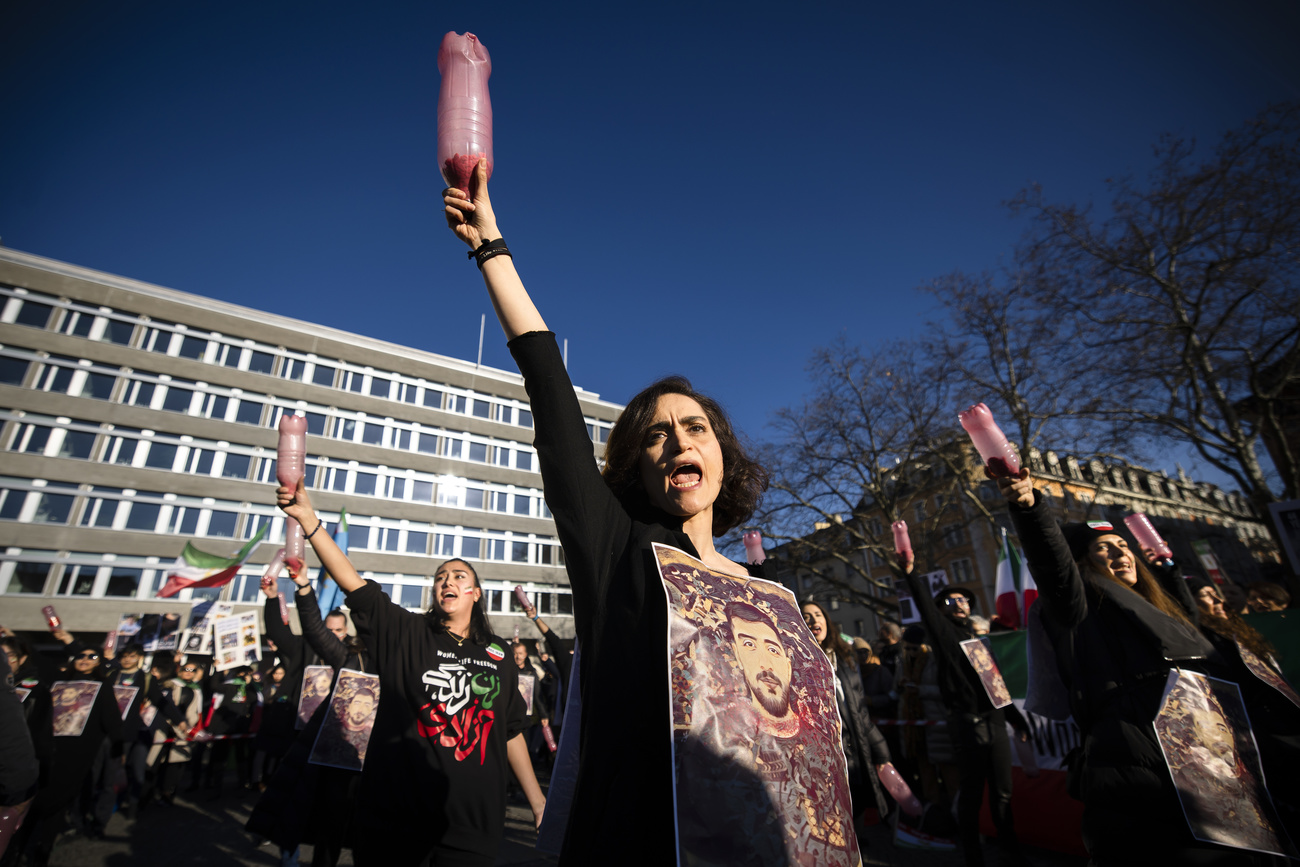
More
Swiss government under pressure to toughen stance on Iran
In May 2021, Switzerland also acted unpredictably while in talks with the European Union. Up until then, the two sides had been in negotiations aimed at concluding an institutional framework agreement to oversee relations. As Switzerland is not an EU member, for the past 20 years relations between Bern and Brussels have been managed via numerous bilateral agreements. As the rules governing EU market regulations have evolved, the bilateral path needed to be updated accordingly.
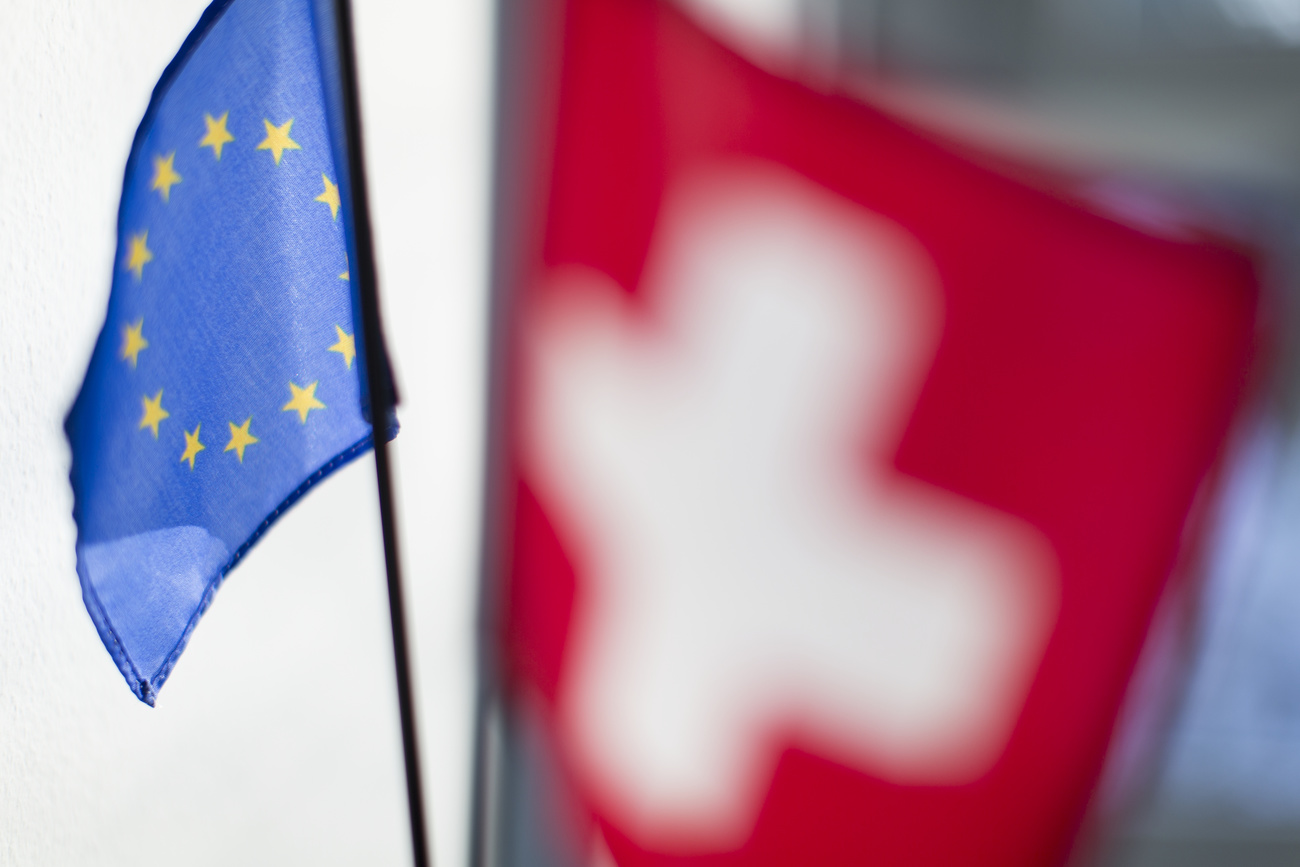
More
Switzerland insists on separate bilateral deals with EU
After negotiating amicably with Brussels for years and delving into details with a meticulousness bordering on obsession, Switzerland suddenly unilaterally broke off negotiations on a framework agreement. This led to a souring of ties between Bern and Brussels.

More
Swiss-EU relations in the balance
Parliament demands more say
In Switzerland people were surprised with the quick about-face with the EU. The parliament’s foreign policy committee was especially taken aback. The internationally minded politicians in the committee saw the abrupt termination of negotiations by the Federal Council, the executive body, as an erratic decision. The Federal Council had bypassed the people and their representatives and made an irreversible decision.
Was it a democratic decision?
The negotiations were broken off during the Covid-19 pandemic, during which the government had triggered an emergency law to enact quick decrees to deal with the crisis. Foreign policy, however, was thought by most parliamentarians to be held to different standards. Foreign policy is a long-term strategy and should be well thought through and coherent.

More
Will Switzerland sort out its differences with the EU in 2023?

The parliament has now drawn up its demands for the Federal Council. Four motions were put on the table during the recent spring session, all with the same underlying message: the government should consult the elected representatives more closely.
‘We are running out of time on the EU issue’
“The Foreign Affairs Committee felt it had been omitted,” Christa Markwalder, the committee’s spokesperson, told her colleagues in a speech to the House of Representatives. “We are running out of time on the Europe issue,” Markwalder stated.
The committee put forward a motion demanding that in the future parliament should be able to approve or reject government policy on Europe.
The vote on the motion was extremely close, with 96 in favour and 94 against, confirming the analysis by political scientist Michael Herrmann: “The debate on Europe reflects public opinion in Switzerland – it is always about 50:50.”

More
Swiss announce next steps for talks with EU
Brexit as a warning for Swiss foreign policymakers
Over the past 12 months Switzerland has been holding exploratory talks with the EU to end the deadlock about future relations. A breakthrough may be on the horizon. On March 29, the Swiss government announced it wanted to finalise a mandate for a resumption of negotiations with the EU over the next three months. Earlier this month, Maroš Šefčovič, vice-president at the European Commission said he hoped to conclude negotiations with Switzerland by the summer of 2024.
However, for many people the whole process remains too slow.
It is primarily the right-wing coalition that is calling for patience. “The Foreign Affairs Committee always tries to conduct negotiations itself, instead of letting the Federal Council do it,” said Christian Wasserfallen of the Radical-Liberal Party, a centre-right party.
“The ability to take things slowly is one of our country’s trump cards,” added Roger Köppel of the right-wing Swiss People’s Party.
When it came to the motion regarding Swiss relations with the European Union, the Foreign Affairs Committee demanded that Switzerland immediately restart negotiations with the EU.
“The dramatic effects of Brexit reflect what is happening in Switzerland, in slow motion,” warned committee spokesperson Roland Fischer of the Liberal Green Party.
Here again, the outcome was close: 90 votes in favour and 98 against, with eight abstaining from voting.
The third initiative by the Foreign Policy Committee demanded more decision-making rights in foreign policy. The distribution of responsibilities between the parliament and the government with respect to foreign policy has been “a subject of discussion for many years”, said Fabian Molina of the Social Democratic Party. “Up until now, the Federal Council has successfully resisted increased intervention by parliament.”
This motion had been previously discussed and its contents had been agreed upon by the Federal Council prior to the session, and therefore the motion was accepted without debate.
Calls for a tougher stance against Iran
Parliament also called on the Federal Council to actively support Iranian civilians and to adopt sanctions that the EU has imposed on Iran for human rights violations.

More
Geneva protesters call for democracy in Iran
In the debate, Foreign Minister Ignazio Cassis argued that Switzerland should fill the “special role of a constructive third party”.
“We are consciously using our foreign-policy leeway to position ourselves independently through this special role, including with regard to the adoption of sanctions,” he asserted.
With 105 votes in favour, 65 against and eight abstentions, the Federal Council’s desire to continue to fill the role of a third party was overridden.
The three adopted motions will now go to the Senate for further deliberation. Nothing has become law yet, but the beginning stages of assessing Switzerland’s foreign policy decision-making process have now been put into motion.

In compliance with the JTI standards
More: SWI swissinfo.ch certified by the Journalism Trust Initiative










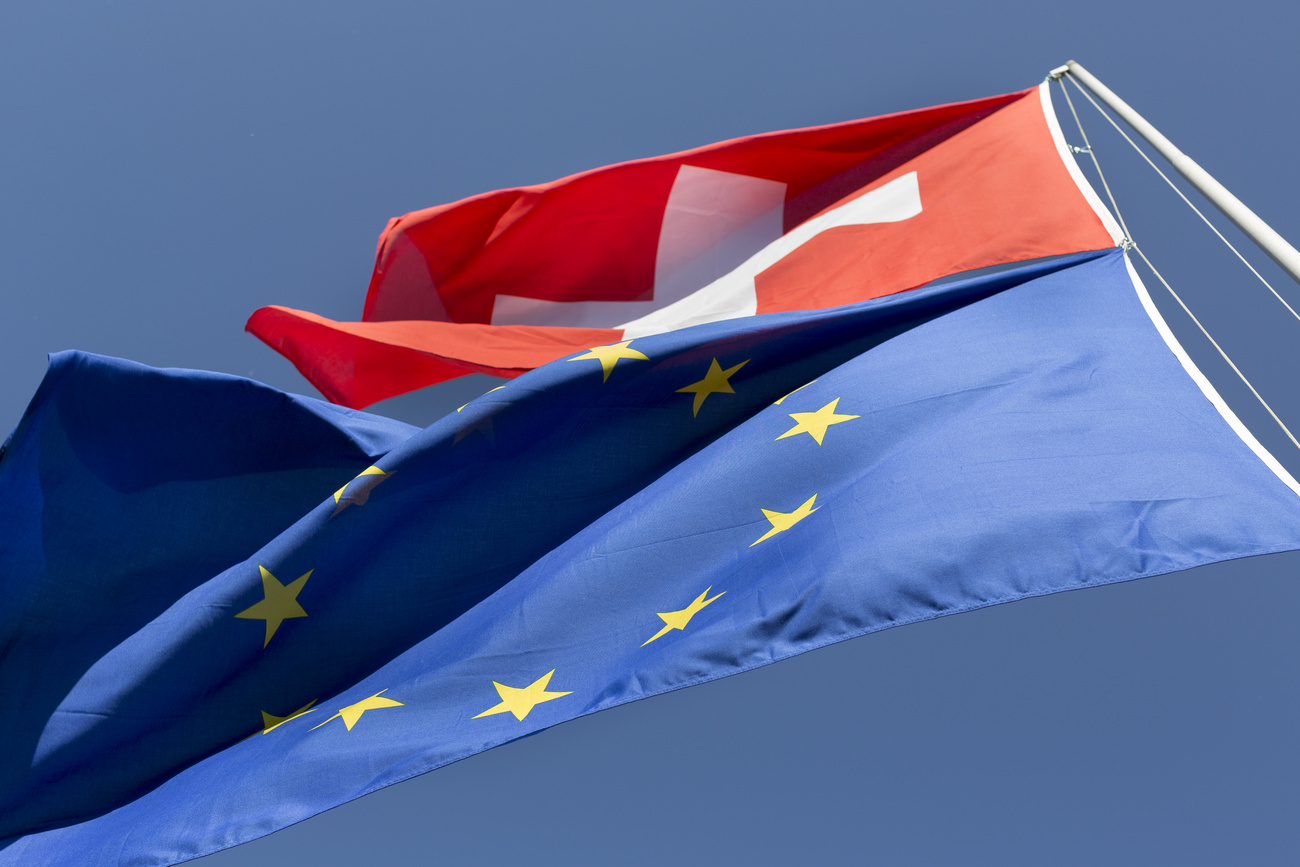
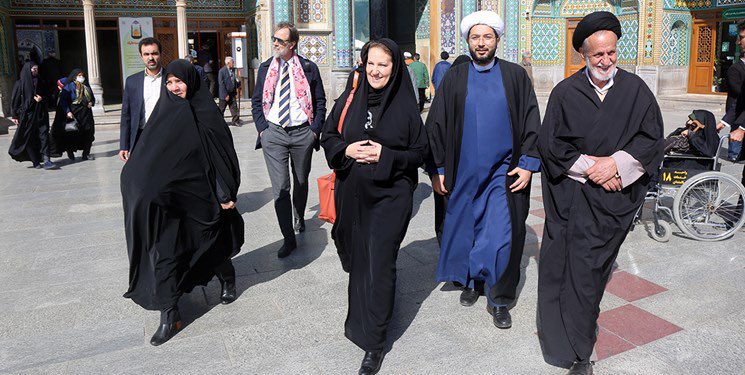

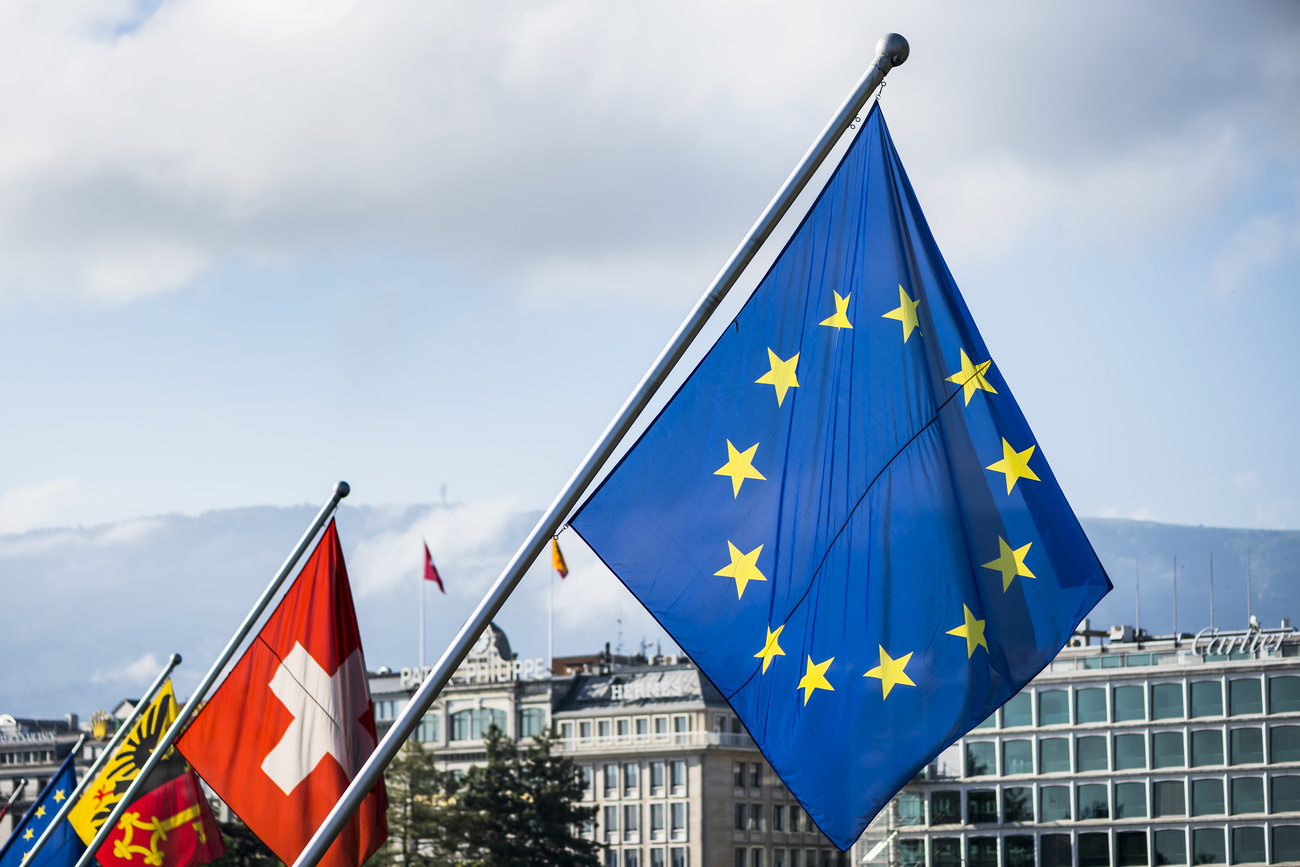

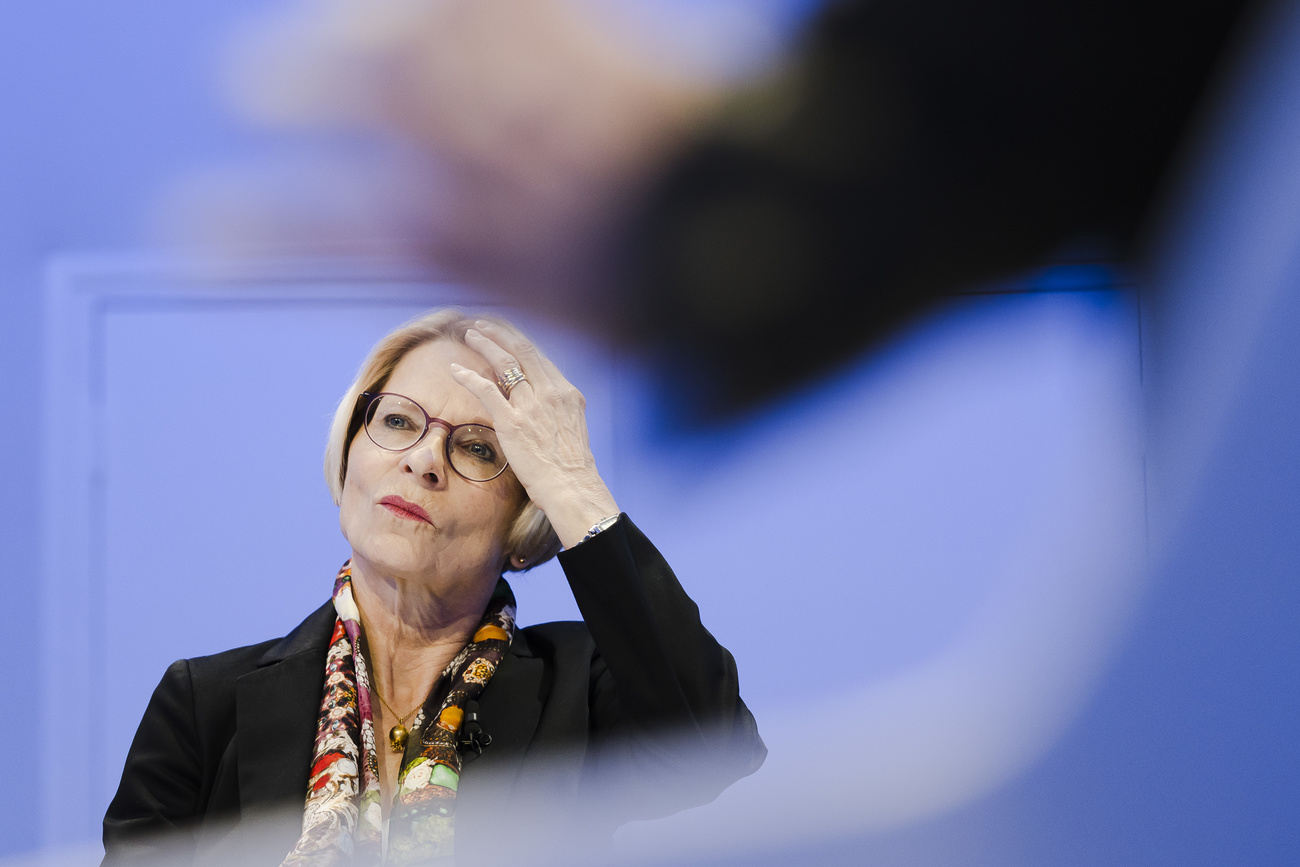

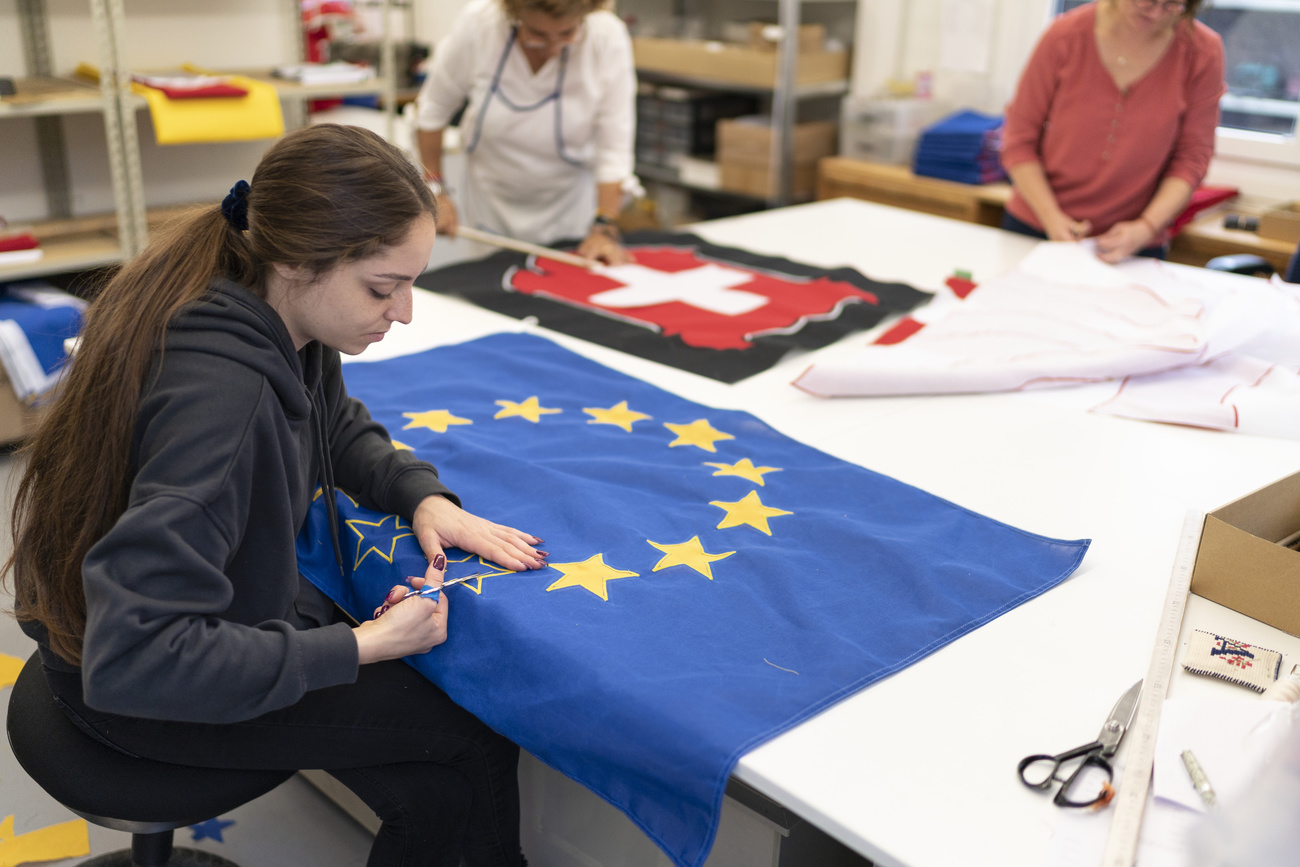
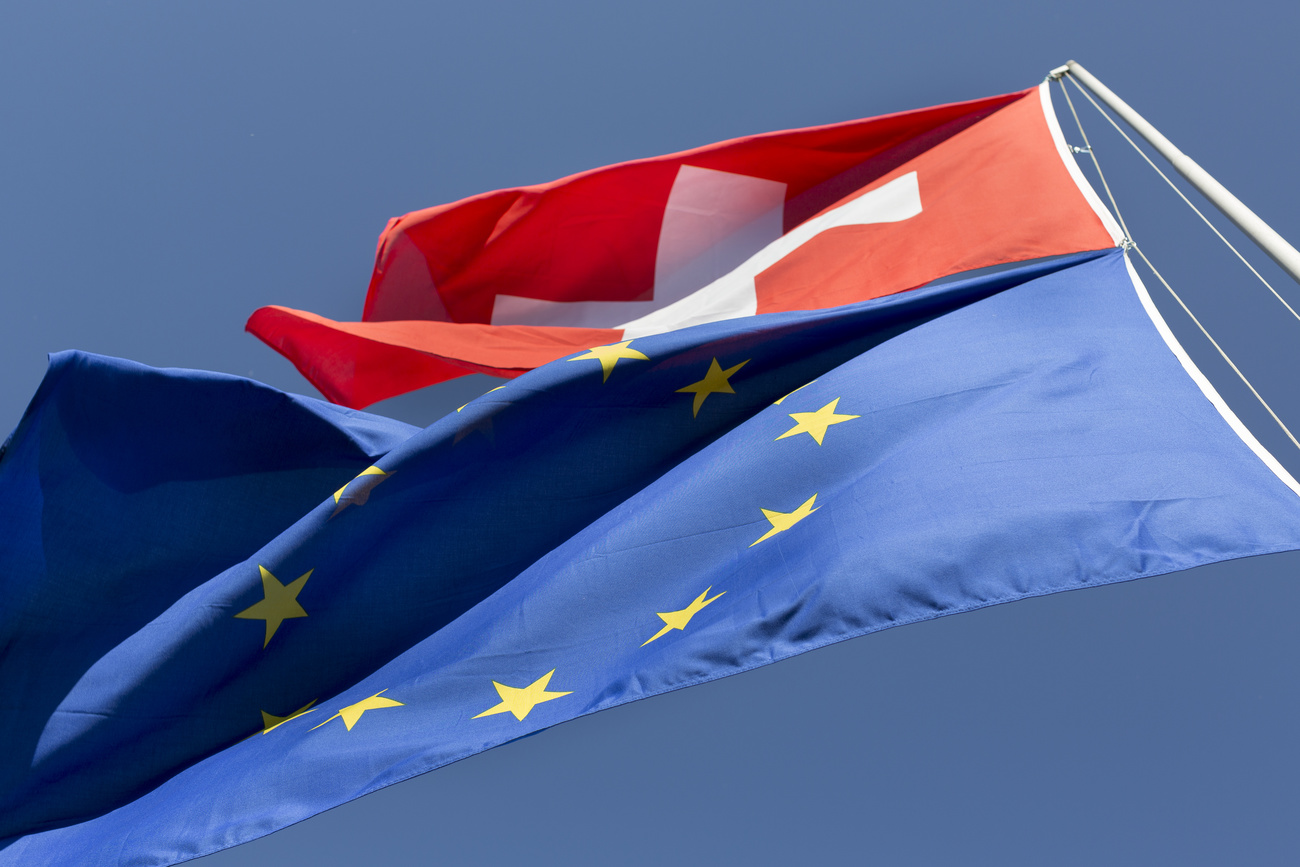
You can find an overview of ongoing debates with our journalists here . Please join us!
If you want to start a conversation about a topic raised in this article or want to report factual errors, email us at english@swissinfo.ch.